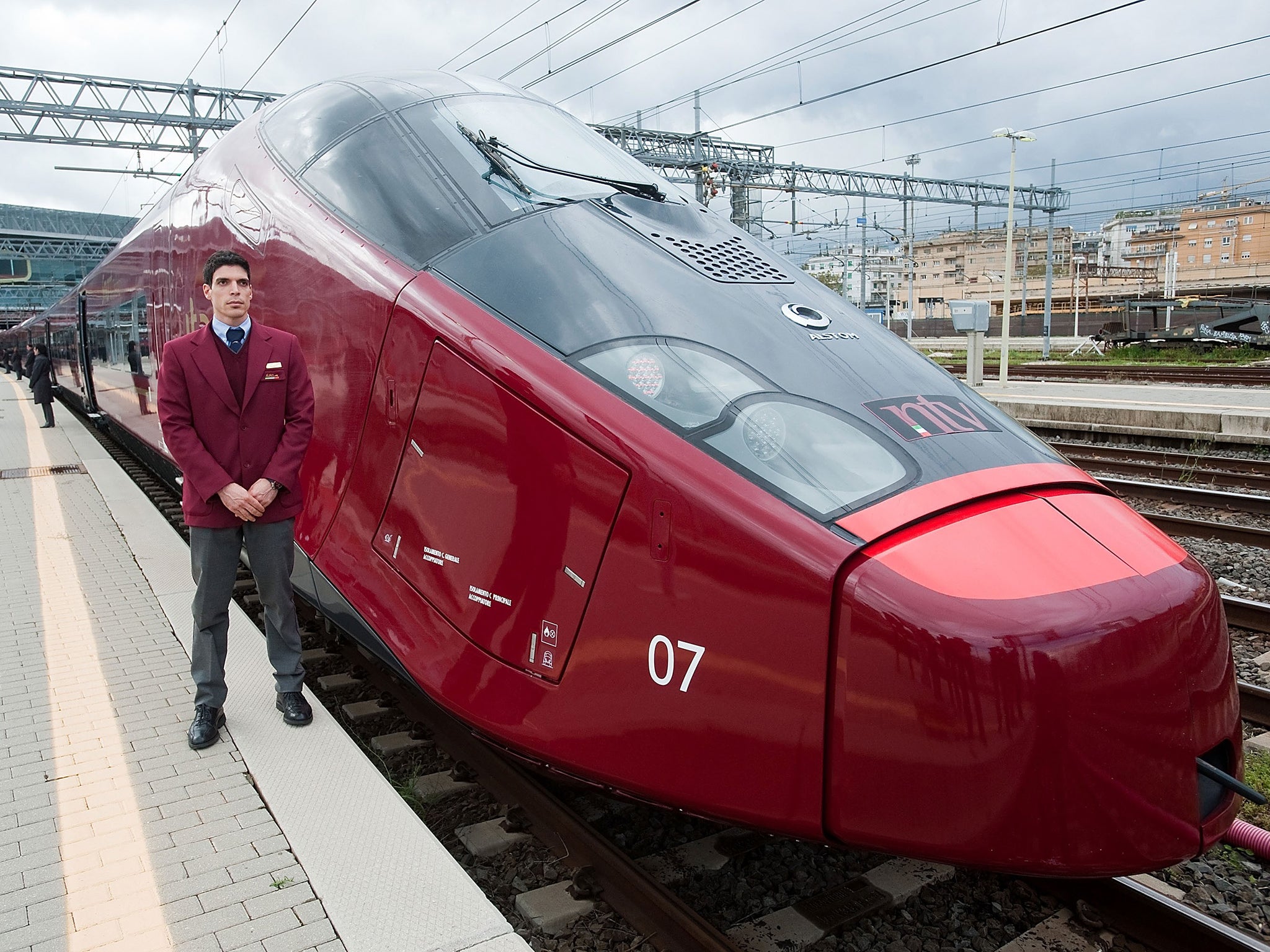High-speed dream turns sour on Milan to Rome rail route

For thousands of Italians making the regular – and wearing – 300-mile trip between Milan and Rome, it seemed too good to be true when not one, but two high-speed rail services emerged in the past few years to whisk them to their destination.
The journey time was slashed from six to three hours and the existence of rival firms meant lower prices. But not for the first time the dream of fair competition and a better deal for consumers is turning sour in one of Europe’s most sclerotic economies.
Ntv (Nuovo trasporto viaggiatori), one of the high-speed operators, appears to be in danger of derailing, it says, hit by a mixture of underhand tactics from its state-owned rival Trenitalia, and indifference from politicians.
The company today took out full-page advertisements in national newspapers demanding that the Prime Minister Matteo Renzi act to create a level playing field, after new operating charges imposed by the state-owed rail operator look set to increase its network charges from €120m to €140m a year.
The plea follows press reports that Ntv – which runs its trains under the Italotreno brand - may have to shed nearly a third of its 1,000 staff following losses of €156m in its first two years. Italotreno passenger numbers are rising steadily, but its trains are still less full than those of state-run Trenitalia.
Professor Carnevale Maffè Carlo Alberto, a competition expert at Milan’s Bocconi business school, said the monopoly that the state-owned firm had enjoyed until now on services operating to and from Rome’s more central Termini station, was a key reason for this.
The newer, private upstart operator has had to make do with Tiburtina station, which is several kilometres further from the centre, and bleak and undeveloped for what is supposed to be an important transport hub.
“I’m a commuter between Rome and Milan and even though I’m all for competition, I choose Trenitalia because Termini station is more convenient,” said Prof Carlo Alberto.
There have also been stories of petty attempts to undermine the newer private operator. At Rome’s Ostiense station a 2m fence suddenly appeared overnight in front of Italo's new customer centre just two weeks before the high-speed service was to launch.
And there were the gloating announcements when its rival's trains were late. State-owned Trenitalia has also slashed prices, apparently hoping that its state subsidies would enable it to carry on long enough to see the private firm collapse in the price war.
After all this there are fears that the new operating costs for 2015 might prove ruinous. Paolo Ripa, Ntv's chief operating officer, told The Independent: “For a small operator like us, already on a knife edge, this extra cost is not sustainable.” But he added: “We are not going to give in.”
Trenitalia has said the claims by Ntv of unfair competition are exaggerated, and that its relative success is due to its better business model. Prof Carlo Alberto says there is some truth in this. “Trenitalia has done very, very well with its e-commerce development. It’s now the number one e-commerce business in Italy,” he said.
But he agreed with Mr Ripa that the Italian government should have done more to ensure that Italotreno had access to central, or at least well-developed, terminals in Rome and Milan from the start.
He said that lack of competition and open markets was one of the key factors holding back the Italian economy, which is labouring under rising unemployment, negative growth once more, and even negative inflation.
Italy's problems were underlined by the 2014-15 World Economic Forum’s global competitiveness rankings out today that have confirmed Italy’s dismal status compared to its key EU rivals France, Germany, the UK and Spain. At 49th place in the global league, Italy also trails behind Turkey, Puerto Rico and Azerbaijan.
Meanwhile the Italian political establishment’s ambivalent attitude to fair competition has been highlighted by comment from the right-wing vice-president of the Senate, Maurizio Gasparri, who as a communications minister in a previous Berlusconi administration, appeared to do everything he could to help the media mogul maintain his virtual monopoly on private broadcasting in Italy. Gasparri mocked Ntv on twitter: “You’re nearly finished – it's risky buying tickets from Ntv."
Prof Carlo Alberto said: “It’s important for politicians and parliament to set a good example in terms of promoting fairness and competition. But if they fail to, what we can we expect from the rest of the country?”
Join our commenting forum
Join thought-provoking conversations, follow other Independent readers and see their replies
Comments
Bookmark popover
Removed from bookmarks